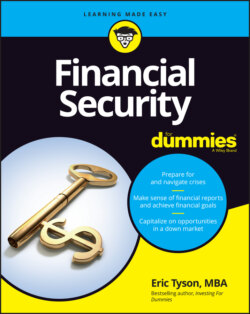Читать книгу Financial Security For Dummies - Eric Tyson - Страница 31
9/11 terrorist attacks and recession
ОглавлениеGenerally speaking, the 1990s were a good decade for the U.S. economy and financial markets. The economy grew briskly after a brief recession early in the decade, unemployment trended down, and stock prices enjoyed one of the greatest bull runs ever. And this came on the heels of the largely good 1980s.
Interest rates and inflation trended lower, and by the end of the decade, the federal government was actually enjoying a budget surplus — imagine that! A strong economy produced booming tax revenues, and believe it or not, the Congress showed restraint in their spending.
By the late 1990s, however, warning signs began accumulating. Stock prices, especially in the increasingly popular internet and technology sector, reached frothy levels. Companies with no profits and little revenue were going public and being bid up.
In the final 18 months leading up to its peak in early 2000, the tech-heavy Nasdaq index rose more than 300 percent and the price-earnings ratio of the stocks in the index exceeded 100! A book published in 1999, Dow 36,000 by James Glassman and Kevin Hassett (published by Crown Business), said that stocks should overall be triple their then current (inflated) valuations. (These authors might finally be right about the Dow level more than two decades later!)
The rise of cheap online trading lured in novice and naïve investors and also encouraged more frequent trading. This period saw the rise of day traders who jumped in and out of particular stocks, sometimes holding a stock for mere hours. Not surprisingly, studies have found that increased trading leads to reduced returns.
As the dot-com bubble began to unravel and the collapse of internet and technology stock prices and companies began to spill over into the broader economy, a recession began to unfold. And then the 9/11 terrorist attacks happened in late 2001, and that further undermined consumer confidence and the economy. A number of high-profile corporate accounting scandals — for example, Enron and WorldCom — also hit investors and their confidence.
The bear market in the early 2000s was a big one, especially in the technology and internet space. Check out the declines of these U.S. stock market indexes:
Dow Jones Industrial Average: 39 percent
S&P 500: 49 percent
Nasdaq: 78 percent
Dot-com Index: 95 percent
